Adolf Hitler, who was not a sports fan, had been lukewarm toward the whole idea of hosting the 1936 Olympics. It had taken some effort by Propaganda Minister Joseph Goebbels to convince him that the Olympic festivities could be exploited to advance the Nazi cause both inside and outside of Germany.
The Games had been awarded to Germany by the International Olympic Committee back in May 1931, before Hitler came to power. It was the second time the modern Olympics were scheduled to be held in Germany. The 1916 Olympics scheduled for Berlin were canceled due to World War I.
Under Goebbels' direction, the Nazis intended to use the 1936 Summer Olympics in Berlin as a showcase for the "new Germany." The Nazis also hoped to profit from the tens of thousands of souvenir-hungry tourists who would bring much needed foreign currency into the country.
The Nazi administration spent 42 million Reichmarks building an impressive 325-acre Olympics sports complex located about five miles west of Berlin. This was the same site that had been chosen for the canceled 1916 Games. The centerpiece of the new sports complex was the gigantic Olympic Stadium built of natural stone which could seat 110,000 spectators. Inside this stadium, the world's largest, there was a special seating area built for Hitler and top Nazis.
While the ambitious Olympic construction project was underway in 1934-35, huge controversy erupted over the exclusion of Jewish athletes from Germany's Olympic team.
The president of Germany's Olympic Committee, Dr. Theodor Lewald, was himself ousted from this prestigious position after it was revealed his paternal grandmother was Jewish. He was replaced by a high ranking SA man named Hans von Tschammer und Osten.
Osten quickly established an Aryans-only policy in selecting Germany's Olympic athletes. This was in keeping with numerous Nazi rules and regulations shutting out Jews from all facets of German society. Some of the Jews excluded from the Olympic team were actually world class athletes, such as tennis star Daniel Prenn and boxer Erich Seelig. They left Germany, along with other Jewish athletes, to resume their sports careers abroad. Prenn played tennis in England while Seelig moved to the United States. The Nazis also disqualified Gypsies, including Germany's middleweight boxing champ, Johann Trollmann.
The banning of non-Aryans from Germany's Olympic team was condemned internationally as a violation of the Olympic code of equality and fair play. The Olympics were intended to be an exercise in goodwill among all nations emphasizing racial equality in the area of sports competition. The Nazis, however, had no interest in promoting racial equality and hoped instead to use the Olympics to show off Aryan athletes, whom they believed were naturally superior because of their race.
The Olympic Torch is carried along a German avenue toward the stadium in Berlin. Below: Aerial view of the massive Olympic Stadium. Below: Germans inside the stadium salute their Führer.
The Nazi attitude toward the coming Olympics brought international calls for a boycott of the Berlin Games along with requests to move the Games to another country. The biggest boycott controversy occurred in the United States, the country which had sent the most athletes to past Olympics and usually won the most medals.
For years now in the U.S., various Jewish and Christian leaders had been reading newspaper accounts of Nazi persecution of Jews, Christian churches, political dissidents, labor leaders and others. Throughout Germany by this time, Jewish athletes of all ages had been banned from city playgrounds and sports facilities, gymnastic organizations, physical education programs, public swimming pools, and even from horse racing. For many American critics of the Hitler regime, the banning of Jews from Germany's Olympic team was the last straw.
The American Olympic Committee was headed by former U.S. Olympic athlete, Avery Brundage, who initially supported the idea of a boycott of the Berlin Olympics. He also sympathized with the hard-line position taken by leaders of America's powerful Amateur Athletic Union calling for a boycott unless the Nazis allowed German Jews to fully participate.
The Nazis attempted to smooth things over by inviting Brundage to Germany and took him to see special training courses supposedly set up for use by Jews in Germany. Brundage was favorably impressed by what he saw and also by the extra-special VIP treatment he was given by the Nazis. As a result, Brundage returned to America and announced on September 26, 1934, that the American Olympic Committee officially accepted the invitation to participate in the Berlin Olympics.
The Amateur Athletic Union, however, was not so easily swayed. Its leader, Jeremiah Mahoney, declared that American participation in the Berlin Games meant nothing less than "giving American moral and financial support to the Nazi regime, which is opposed to all that Americans hold dearest."
The outspoken Mahoney was supported in his position by various American Jewish and Christian leaders, along with liberal politicians such as New York Governor Al Smith. Forty-one college presidents also voiced their support for a boycott. In addition, America's trade union leaders supported an Olympic boycott and also pushed for a complete economic boycott of Nazi Germany. They were strongly anti-Hitler as a result of the systematic dismemberment of Germany's trade unions by the Nazis.
Responding to the mounting international pressure, the Nazis made a token gesture by allowing a part-Jewish athlete, Helene Mayer, back on their Olympic team. She had won a gold medal at the 1928 Games and was considered to be the world's greatest female fencer. The Nazis also let the part-Jewish Theodor Lewald function as an "advisor" to Germany's Olympic Organizing Committee.
Back in the U.S., Avery Brundage responded to his own critics by claiming the Olympics were meant for "athletes not politicians." He succeeded in swaying a number of American athletes to his point of view. When the Amateur Athletic Union took its final vote on December 8, 1935, the boycott proposal was voted down by a razor-thin margin. The Americans would participate after all.
The U.S. Olympic team turned out to be its biggest ever with 312 athletes including nineteen African Americans and five Jews. The Nazis had given repeated assurances to the International Olympic Committee that black athletes would be treated well in Germany. The Nazis also reluctantly agreed to let foreign Jews participate.
However, some American Jewish athletes, including Harvard University track star Milton Green, chose to sit out the Olympics to protest Nazi anti-Semitism. Doing this meant passing up the opportunity of a lifetime in order to make a political statement. Jewish athletes from other countries also decided to sit out the Games as a protest, including star athletes from Austria, France and Canada.
In all, fifty-one countries decided to participate in the Berlin Games. This was the biggest number so far in the modern Olympic era. Germany had the largest Olympic team with 348 competitors. Soviet Russia had not participated in any of the Olympics thus far and was also absent from Berlin Games.
In mid-July 1936, the teams began arriving in Germany and were given the red-carpet treatment by their Nazi hosts with many lavish receptions held in their honor. Berliners had been repeatedly told by the Nazi administration to create a good impression by making international tourists feel welcome. The resulting over-friendliness of normally gruff Nazi Brownshirts and SS men seemed amusing to those who knew them better, such as foreign journalists stationed in Berlin.
Tourists entered a squeaky clean Berlin where all undesirable persons had been swept off the streets by police and sent to a special detention camp outside the city. Buildings everywhere were decorated with Olympic flags hung side-by-side with Nazi swastikas including all of the various facilities used for sporting competitions.
The omnipresent 'Jews Not Welcome' signs normally seen throughout Germany were removed from hotels, restaurants and public places for the duration of the Olympics. Nazi storm troopers were also ordered to refrain from any actions against Jews. The virulent anti-Semitic newspaper published by Julius Streicher called Der Stürmer was even removed from newsstands. Interestingly, visitors wanting to talk to Jews in Berlin about their daily experiences or investigate Jewish life in Nazi Germany were required to contact the Gestapo first, after which they would be closely watched until they departed.
Berliners and tourists stroll about the Lustgarden at night amid a display of flags from participating nations. Below: An Olympic Flag is seen on the corner of Café Kranzler located upon the busy Unter den Linden.
The opening ceremony of the XI Olympic Games was held on Saturday, August 1, 1936, inside the Olympic Stadium, which was jammed to capacity. Unfortunately, the Germans did not get the usual sunny 'Führer weather' which always seemed to accompany big Nazi events, but instead got a cloudy day with occasional rain showers. Hitler and his entourage, along with the Olympic officials, walked into the stadium amid a chorus of three thousand Germans singing the Deutschland Über Alles national anthem followed by the Horst Wessel Lied Nazi anthem.
Over 5,000 athletes from 51 nations then marched in according to alphabetical order, with Greece leading the whole parade and the host country, Germany, at the end. But even the opening ceremony was not without controversy – the question being whether athletes would give the Nazi salute to Hitler as they passed by his reviewing stand. There was some confusion over this issue, since the Olympic salute with right arm held out sideways from the shoulder could also be mistaken for the Hitler stiff-arm salute. Most countries gave either one or the other. Austrian athletes gave the Hitler salute. French athletes thrilled the German audience by giving the Hitler salute, although some French athletes later claimed it was the Olympic salute. The Bulgarians outdid everyone by goose-stepping past the Führer. The British and Americans chose a military style 'eyes right' with no arm salute.
The flag bearer of every nation was supposed to dip their country's flag while passing by the Führer and the Olympic officials. The American flag bearer upset many Germans in the audience by ignoring this, adhering to the U.S. custom of only dipping to the President of the United States and no one else.
The magnificent Airship Hindenburg flew low over the stadium trailing the Olympic flag with its five rings representing the five participating continents. As a symbolic gesture, the Nazis allowed Olympics organizer Theodor Lewald to give the opening speech, which was followed by Hitler's simple message: "I proclaim the Games of Berlin, celebrating the eleventh Olympiad of the modern era, to be open." This was the only public utterance Hitler made during the Olympics.
Hitler's opening proclamation was followed by the Olympic Hymn written by German composer Richard Strauss for the Games. The climax of the opening ceremony then occurred with arrival of the Olympic torch. It had been carried all the way from Olympia, Greece, by some three thousand separate relay runners over a twelve-day period. It was the first time in Olympic history this had been done.
Sporting competitions began the next day, Sunday, August 2nd, with the track and field events. During this week-long competition, the 100 and 200-meter sprints were won by Jesse Owens, an American track star from Ohio State University. He set new world records in both races. Owens went on to win four gold medals in all, setting a world record in the long jump and also helped set one in the 400-meter relay.
German broadcasters and journalists always referred to the African American Owens as "the Negro Owens." The other eighteen African American athletes were referred to as "America's Black Auxiliaries" as if they were not full-fledged team members.
Owens became an instant superstar in Berlin. German fans chanted his name whenever he entered the Olympic Stadium and mobbed him for autographs in the street. Hitler, however, never met him. On the first day of the track and field competition, Hitler had left the Olympic Stadium as rain threatened and darkness fell and missed greeting the three American medal winners in the high jump, two of whom were black. This upset Olympic officials and they advised Hitler that either he should receive all of the medal winners or none of them. Hitler decided to receive none of them from that point onward, including Owens.
Jesse Owens seen in the Long Jump. Below: Medal ceremony for the Long Jump - Owens with the Gold Medal for America; Japan the Silver and Germany the Bronze.
International journalists covering the Olympics took note of this and speculated it was because Owens and his fellow African American athletes won so many track and field medals, fourteen in all. Some journalists went so far as to say their victories debunked the Nazi myth of Aryan racial superiority.
Owens later said he didn't feel snubbed by Hitler. According to Owens, at one point during the track and field competition he glanced up at Hitler in his box seat and the Führer stood up and waved to him, and he had waved back at Hitler.
Another big news controversy erupted in America when it was revealed that the only two Jews on the U.S. track team had been dumped at the last minute from the 400-meter relay race. On the morning of the race, Marty Glickman and Sam Stoller were informed by their head coach they would be replaced by Jesse Owens and Ralph Metcalfe. Glickman later speculated that Avery Brundage might have pressured the American coaches to drop the Jews to avoid upsetting Hitler. As a result, Glickman and Stoller wound up sitting in the stands watching the race which they might have easily won themselves since they were superb relay runners.
Throughout the fourteen days of athletic competition Hitler maintained a deliberately low-key presence at the Olympics. This was done to please Olympic officials who did not want him to upstage the festivities. It was also a good opportunity for the Führer to appear calm and dignified among the thousands of international observers who were watching his every move. To the surprise of his top aides Hitler became genuinely interested in the various sporting matches and took great delight in every German victory.
The XI Olympic Games concluded on Sunday, August 16, with Germany as the overall victor, capturing 89 medals. The Americans came in second with 56. The Games were preserved on film byTriumph of the Will director Leni Riefenstahl. Financed by the Nazis, she brought thirty-three camera operators to the Olympics and shot over a million feet of film. It took her eighteen months to edit Olympia into a four hour film which was released in two parts beginning in April 1938.
Remarkably, the Berlin Games saw the first-ever use of television at the Olympics, although the picture reception was not very good. At the Olympic Village, where all of the male athletes lived, a large recreation building known as Hindenburg Hall had a TV room where they could watch live competitions. Seventeen other sites around Berlin also featured TV rooms.
The Olympic Village itself received rave reviews from everyone who stayed there. The 130-acre village was constructed by the German Army under the direction of Captain Wolfgang Fuerstner. It was laid out in the shape of a map of Germany and contained 140 buildings including a post office and bank. Each of the athletes' houses contained 13 bedrooms, with two athletes per room. There were two stewards always on duty in each house who spoke the athletes' native language. Training facilities in the Village included a 400-meter oval track and a full-size indoor swimming pool.
Fuerstner's Olympic Village was the finest housing ever provided to Olympic athletes up to that time. However, just before the Olympics began, Captain Fuerstner received a demotion because of his Jewish ancestry. He had to endure being second-in-command at the Village which he had brilliantly designed, while his non-Jewish successor, Lt. Col. Werner Gilsa, received the credit for his accomplishment. Two days after the Games ended, Fuerstner attended a lavish Nazi banquet held in honor of Gilsa. Afterwards, the despondent Fuerstner went back to his barracks and shot himself. The Nazis tried to cover up his suicide by giving him a full military burial, claiming he had been killed in an auto accident.
Overall, the Berlin Olympics was a big success for the Nazis. Hundreds of international journalists acknowledged that Germany had put on the most lavish and biggest Olympics ever. Many thousands of tourists also left Germany with happy memories of the courtesy extended to them by the Nazis and the German people, as well as the fantastic facilities and precise efficiency of the whole event. The Nazis had succeeded in getting what they most wanted from hosting the Olympics – respectability.
During the closing ceremonies the president of the International Olympic Committee had issued the traditional call for the next Games, requesting "the youth of every country to assemble in four years at Tokyo, there to celebrate with us the twelfth Olympic Games."
But there would be no more Olympic Games for a dozen years. The 1940 Games scheduled for Tokyo and the 1944 Games were both canceled. Instead of competing with each other on athletic fields, the youth of many countries wound up killing each other on fields of battle in a new world war – a war Adolf Hitler was already planning.
This Black Social History is design for the education of all races about Black People Contribution to world history over the past centuries, even though its well hidden from the masses so that our children dont even know the relationship between Black People and the wealth of their history in terms of what we have contributed to make this world a better place for all.
Sunday, 30 November 2014
BLACK SOCIAL HISTORY : THE BERLIN OLYMPICS OF 1936 - WERE BLACK ATHLETES PROVED THEY WERE THE MASTER RACE :
Subscribe to:
Post Comments (Atom)
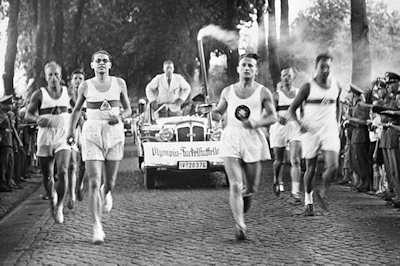
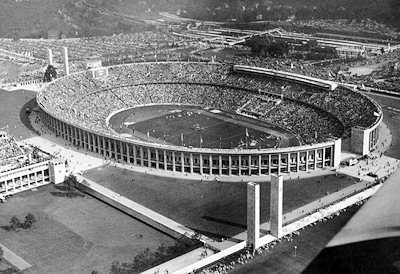
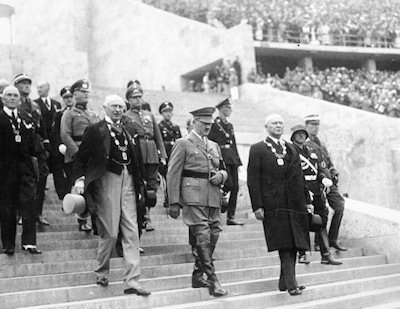
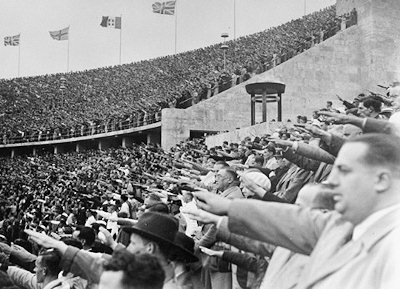
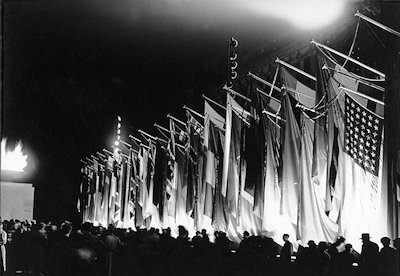
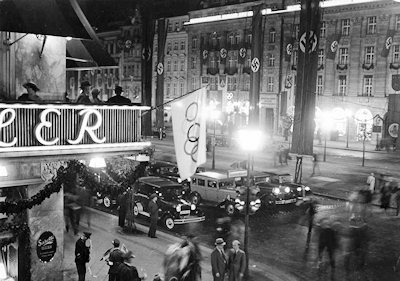
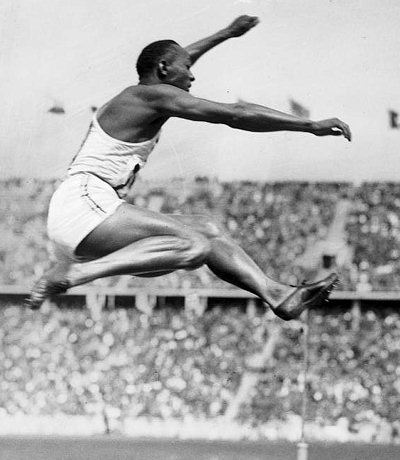
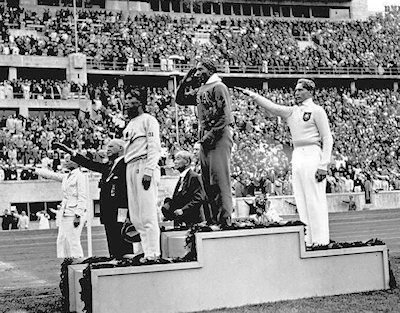
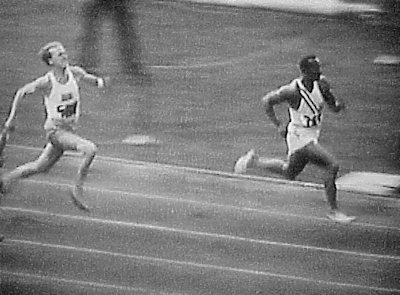
































































































































































































































































No comments:
Post a Comment